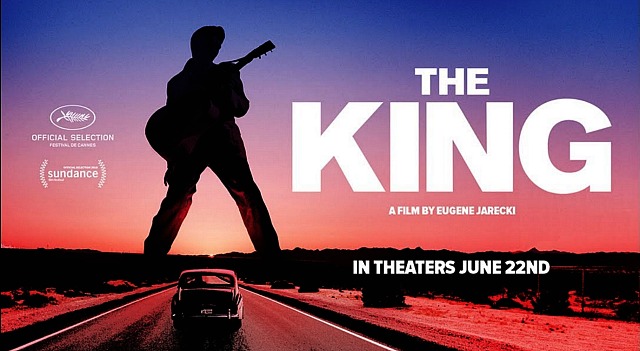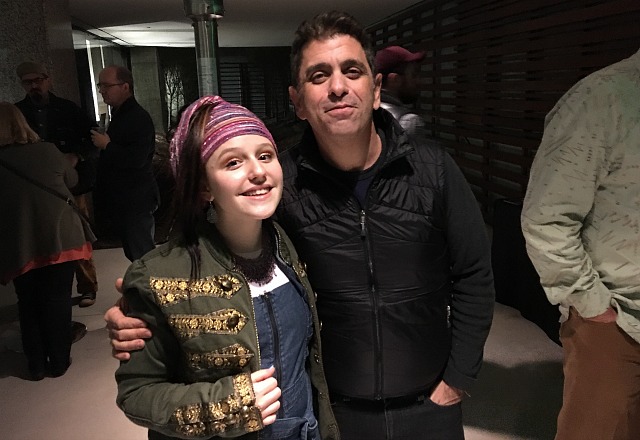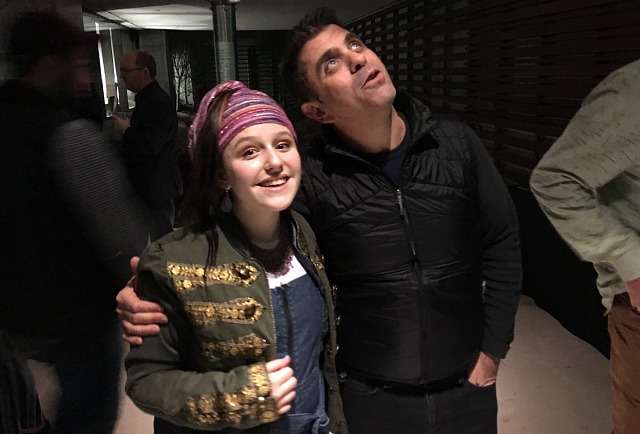The main thing about Eugene Jarecki‘s The King is that it’s less of a “rise and fall of Elvis” film than a meditative road-trip essay about the cultural decline of the U.S. of A. over the last…oh, call it 60 years. But with doses of music and feeling and irony and currents of straight talk. It’s a stirring musical sermon. How did we get here? Then vs. now. The bloat, the denial, the loathing…a nation arguably more at war with itself than at any time since the Civil War. Paul Simon rewrite: “We’re empty and aching and don’t know why.”
Well, actually we do. The same forces that gradually enveloped that young and jumpy Memphis rocker who exploded in the South in ’55 and then nationally in 1956 with a blend of rockabilly and white-boy soul…the musical-spiritual aura that defined him gradually dispersed, and then selling out became the be-all, the chimes of irrelevance…shitty movies, Las Vegas gigs instead of touring the country, Dr. Feelgood medication, endlessly beholden to Colonel Tom Parker, huddling with the Memphis mafia behind Graceland gates. A flamboyant, increasingly perverse, go-for-the-dough lifestyle that pretty much drained and ate him.


13 year-old country blues singer Emi Sunshine, who takes a ride in Elvis’s silver Rolls Royce and sings some tunes in Jarecki’s doc, and Mr. Jarecki himself — Tuesday, 3.6, following screening at UTA.
It can’t hurt to repost the official synopsis: “A musical road trip across America that explores how a country boy lost his authenticity and became a king while his country lost its democracy and became an empire.” 27 words. Marketers would say trim it down. “A half-musical, all-visual poem about how the Las Vegas aesthetic swallowed America in the same way it swallowed Elvis Presley.” Still too long?
As noted everywhere, The King itself was trimmed after its world debut at the 2017 Cannes Film Festival, when it ran 117 minutes. Now it’s around 97.
My first viewing of The King happened three and a half months ago inside United Talent Agency headquarters. In a HE piece that posted on 3.6 (“King of Drain“), I said I was “pretty close to knocked out — touched and shaken to the depths of whatever — and I’ll eat my black Kenneth Cole desert boots if it doesn’t become a Best Feature Documentary nominee next January. It’s that good, that bell-ringy, that profound.”
Now the hour is nigh — The King (Oscilloscope) opens on 6.22.
The King isn’t the least bit grim or draining or forlorn — as you watch there’s a feeling that all the cultural threads and fibres have been woven just so. Not an Elvis doc, not an Elvis doc, not an Elvis doc…but a telling of his story (which most of us know backwards and forwards) in a way that expands and deepens and makes you lean forward.
Every talking head has two or three sage things to say: Greil Marcus, James Carville, Chuck D, Alec Baldwin, Roseanne Cash, Ethan Hawke, Emmylou Harris, Van Jones, Ashton Kutcher, Mike Myers, Dan Rather, Luc Sante, David Simon, Linda Thompson. My favorites are Hawke, Jones and Public Enemy’s Chuck D.
I was actually a tiny bit sorry when The King ended.
The King‘s message partly overlaps with a classic George Carlin rant: “This country was nice when we stole it…looked pretty good, pristine, paradise. Have you seen it lately? Have you taken a good look lately? It’s fucking embarassing. Only a nation of unenlightened half-wits could have taken this beautiful place and turned it into what it is today…a shopping mall, a big fucking shopping mall.”
Presley, a louche sad sack if there ever was one at the end, keeled over on 8.16.77, after 42 and 1/2 years on the planet. Even Michael Jackson, another figure of self-destruction, outlived him by a decade. And now, the film implies, fat Elvis and Trump are kind of joined at the cultural hip. Or fat Elvis gradually led to Trump. Or something like that.
Why the hell didn’t Presley stand up for the Civl Rights movement? Why didn’t he attend that famous March on Washington in August of ’63 along with Bob Dylan, Marlon Brando and everyone else? Presley was one of hundreds to appropriate black singing styles as his own in rock’s early days, but who owed more to them? Who was carrying around a bigger I.O.U. in his wallet? Instead he became a rich Memphis redneck. By the time Presley visited President Nixon on 12.21.70, he’d become a hippie-hating reactionary.
Chuck D.: “Elvis was a hero to most but he never meant shit to me, you see. Straight-up racist that sucker was. Simple and plain. Mother fuck him and John Wayne.”
From Owen Gleiberman’s Variety review, posted on 5.22.17: “Elvis the pinkie-ringed druggie, doing karate chops from the Vegas stage, was the pursuit of happiness eating its own tail. And it was right around then that America began to create the template for the society we have today, which is dominated by the twin demons of addiction and advertising. ‘Fake news’ isn’t just fake information; it’s commercials — lies — consuming the culture of reality. And what are Donald Trump’s policies, really, but a series of reflexive hate gestures (I hate Obamacare! I hate the media! I hate our NATO allies! I hate immigrants and Muslims! I hate climate-change science!) turned into an addictive revenge thriller. He’s addicted to the hate, and his supporters are addicted to him. They’re addicted to the Fat Orange Elvis.”
The King ends with one of the greatest cultural-political montages I’ve seen in a long time, a portrait of America’s ruined soulscape as we listen to porker Elvis sing “Unchained Melody” from a Vegas showroom. For this sequence alone it’ll be Oscar-nominated.










